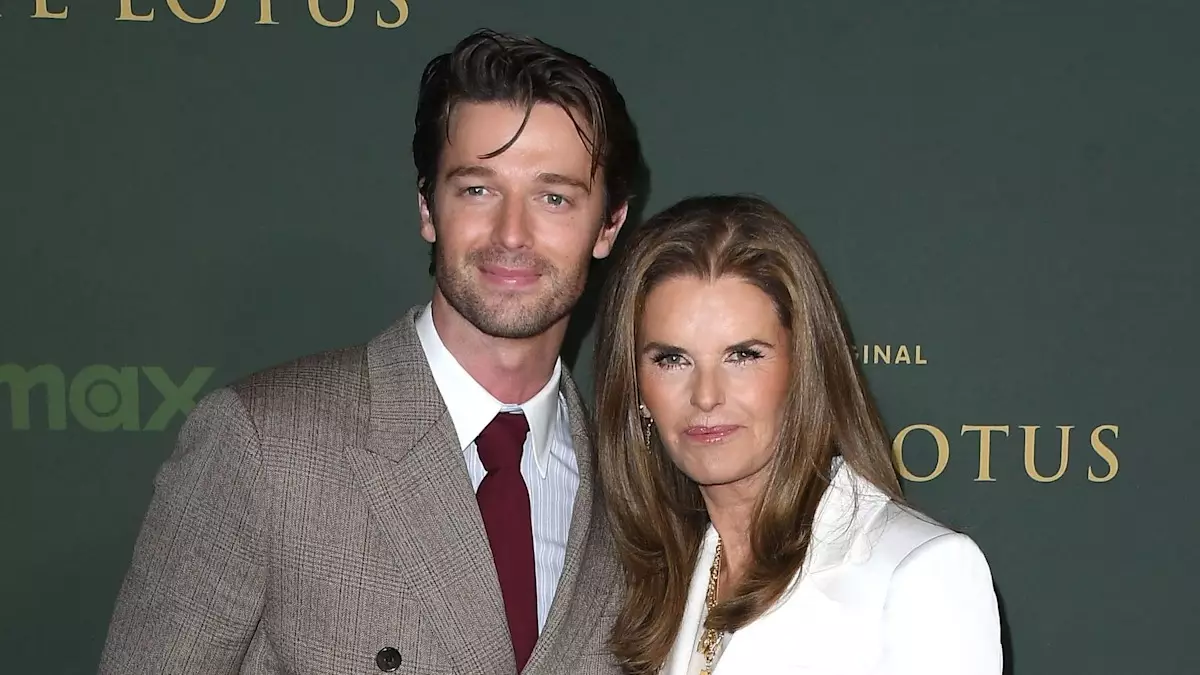As Maria Shriver approaches her 70th birthday, she embarks on a quest that resonates with many: the search for self-identity. Having been intertwined with a variety of powerful roles—from a member of a prominent American dynasty to the first lady of California, and more recently, as a journalist and author—Shriver embodies a compelling narrative of complexity and evolution. Her latest endeavor as a poet encapsulates her reflections on a life rich with experiences, emotions, and transformations.
Upon delving into Motherhood, Shriver unveils layers of her relationship with her late mother, Eunice Kennedy Shriver. Imbued with the legacy of the Kennedy family, Eunice was a force to be reckoned with; yet, Maria feels she was largely seen in relation to her mother’s ambitions rather than as an individual. It’s a poignant reminder that often, even within powerful familial legacies, personal identity can become overshadowed. Maria’s acknowledgment of this dynamic highlights a prevalent struggle where children seek validation and recognition for their individuality, a struggle intensified under the immense spotlight of public life.
Emotional Landscapes of Motherhood
Seamlessly, Shriver transitions from reflecting on her mother to her own role as a parent. Her candid expression of love for her four children underscores her desire to be a different kind of mother—one whose door is always open and whose heart prioritizes family above all else. Maria’s journey through motherhood is about breaking the cycle of emotional distance that she experienced. It’s a testament to the lifelong effects that childhood relationships can have, particularly when those dynamics are shaped within the context of fame and legacy.
In her conversation on CBS Sunday Mornings, the authenticity with which Shriver conveys her feelings about motherhood—coupled with her willingness to show vulnerability—paints a powerful image of her prioritization of family. Tears that accompany her words are not merely a reflection of sensitivity but signify a deep well of love and a yearning for connection that transcends her previous experiences. In many ways, these admissions are a profound assertion that she aims to craft a nurturing and open dialogue with her children, reshaping their family narrative.
The Poetic Turn: A Path to Self-Discovery
Following her separation from Arnold Schwarzenegger, a moment laden with public scrutiny and personal upheaval, Maria Shriver found solace in poetry. Her upcoming book, *I Am Maria: My Reflections and Poems on Heartbreak, Healing, and Finding Your Way Home*, epitomizes a creative and restorative passage into the realms of emotional self-exploration. In a world where many struggle to express their feelings, Shriver’s pivot to poetry serves not only as a means of understanding herself but also as a beacon of hope for those navigating their own crises.
Poetry becomes the tool through which Maria drills down into her raw emotions. The act of writing becomes cathartic; it compels her to confront the questions that linger in her life: “What do I do now? Where am I going? Who am I?” It’s a powerful anecdote embodying the continuous ebb and flow of self-identity, especially for those who may feel lost or defined by external narratives rather than their own internal truths. Art in this vein is a reclamation of autonomy; through verses, Shriver communicates her experiences while inviting her readers to reflect on their journeys.
A Reflection of Resilience and Acceptance
Looking back on her life, Maria offers an honest assessment: “Life hasn’t turned out exactly the way I thought.” This phrase encapsulates a level of acceptance and resilience that is both inspiring and relatable. It emphasizes the alienation many feel when confronted with the chasm between their expectations and reality. Yet, rather than recoil into bitterness, Shriver radiates a profound gratitude for her experiences—a testament to her journey of self-discovery.
While individuals around her might perceive her as restless or driven, she eloquently asserts her newfound sense of peace. This perspective challenges societal narratives that celebrate relentless ambition without recognizing the importance of inner tranquility. In expressing her transformation, Shriver illustrates that recognizing oneself is an ongoing process and that peace can exist even amidst life’s uncertainties.
Through her poetry, reflections, and reinventions, Maria Shriver emerges not only as a woman in search of identity but also as a voice for reconciling past traumas while embracing new beginnings. Her narrative resonates far beyond the complexities of her public life, delving into universal themes of love, motherhood, loss, and the quest for understanding oneself in an ever-changing world.
